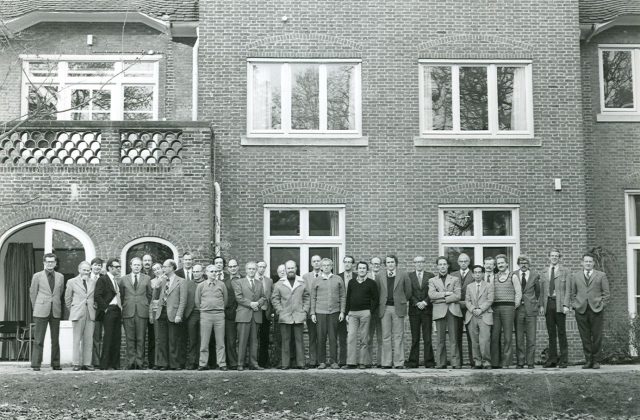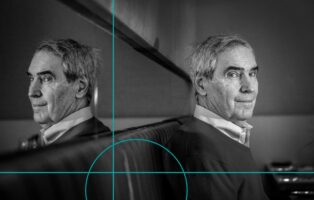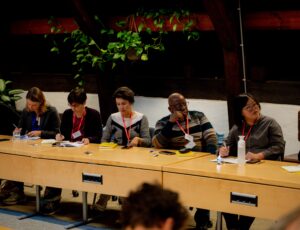How IAS started
In 1932, Abraham Flexner had a dream: in an era rife with political threats, he wanted to push back with – in his words – “an institute devoted to unrestricted research at the frontiers of knowledge.” The idea was to create an infrastructure filled with opportunities and prospects for the world’s greatest minds. Siblings Louis and Caroline Bamberger, two revered American philanthropists, were so impressed by Flexner’s philosophy that they decided to donate five million dollars to his cause. Thus, in November of 1932, the Princeton Institute for Advanced Study was born.
Princeton’s institute was the first of its kind in the world. It was established in a time in which freedom of thought and the autonomy of sciences were under extreme pressure – especially in Germany, where Adolf Hitler’s Nazi Party was on the brink of taking power, bringing a period of poisonous anti-Semitism in its wake. This was a direct threat to evidence-based scientific thought in the region, and many other countries across the world also exhibited a decline in the freedom of thought. The events in Germany and other parts of Europe in the ‘30s and ‘40s led to a visible change in world’s intellectual landscape, in which flawed political ideologies drove research – not intelligent, curiosity-driven thought. Yet, the Princeton IAS provided hope for many high-profile intellectual refugees by providing a refuge for scientists fleeing persecution.
The Netherlands
The idea for an IAS in the Netherlands was born in Leiden in 1959. Initially, the aim was to establish a European institute for all disciplines of science, but the process of establishing such an institute was long and arduous, so the plan was abandoned – for the time being.
In the academic year 1965 – 1966 Professor E.M. Uhlenbeck, a Dutch linguist, was invited to the Center for Advanced Studies in Stanford. He returned from his visit at the institute with the vision of creating a similar institute in Europe. A place – like the institutes in Princeton, Palo Alto and Stanford – for the free pursuit of intellectual curiosity.
Over many years what would come to be NIAS was shaped, formed, nearly forgotten and reformed anew – throughout, Uhlenbeck played the drumbeat of support. In 1970 the buildings that suited the institute’s objectives perfectly, became available in the Dutch town of Wassenaar. At this time, the Ministry of Science and Education decided to allocate money for the purchase of these suitable buildings at the Meijboomlaan. And so, in 1970, the Netherlands Institute for the Advanced Study of Humanities and Social Sciences was founded. In addition to the institutes in Princeton and Stanford, NIAS was the third institute of its kind in the world and the first in Europe. Its design was based on that of Stanford’s institute. The Uhlenbeck Lecture, named after NIAS’ founder, is delivered every year at NIAS as one of the highlights of the NFA-Day (NIAS Fellows Association).
NIAS became a part of the Royal Netherlands Academy of Arts and Sciences (KNAW) back in 1988 – a position it still holds today.
NIAS in Amsterdam
In 2013, the Board of the Royal Academy made the decision to relocate NIAS from Wassenaar to Amsterdam. The relocation process took almost three years, and in September 2016, the new location in the heart of the Dutch capital officially opened its doors.
Rectors of NIAS
- Prof. dr. H.A.J.F. Misset (from 1970 to 1986)
- Prof. dr. D.J. van de Kaa (from 1987 to 1995)
- Prof. dr. H.L. Wesseling (from 1995 to 2002)
- Prof. dr. W.P. (Wim) Blockmans (from 2002 to 2010)
- Prof. dr. A.C.J. (Aafke) Hulk (from 2010 – 2013)
- Prof. dr. P.M.G. (Paul) Emmelkamp (from 2013 – 2016)
- Prof. dr. Th. (Theo) Mulder (2017)
- Prof. dr. Jan Willem Duyvendak (from 2018 – )
More information about NIAS’ history can be found online in these publications.
More information about NIAS’ history can be found online in these publications.




